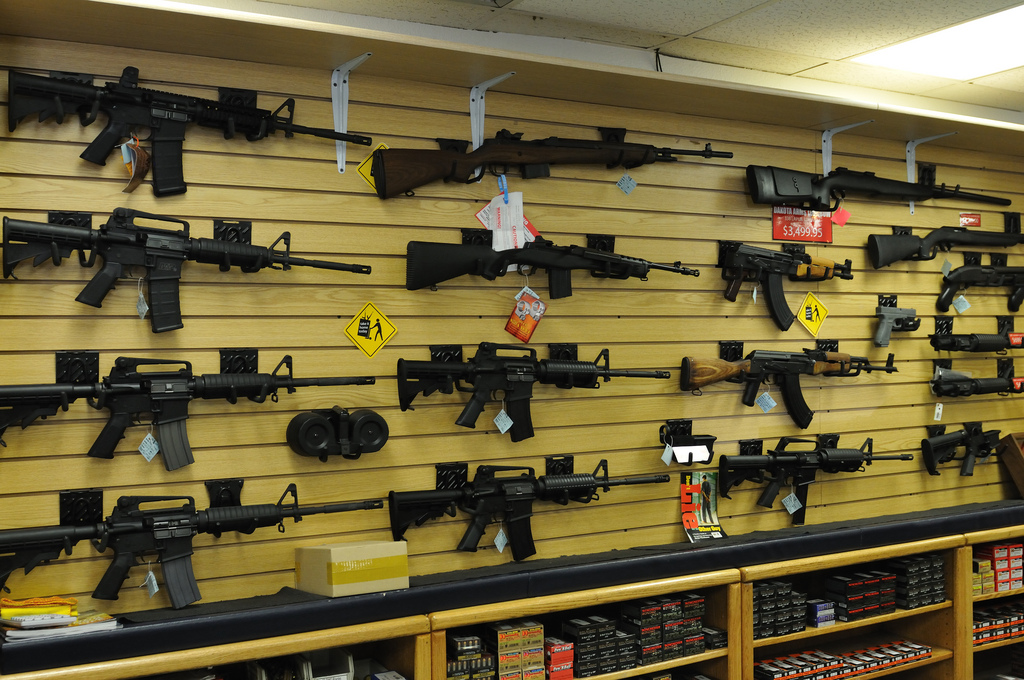I was in my room in Edinburgh, Scotland when I got a text from a friend telling me there had been a shooting two blocks from my high school in Colorado Springs, Colo.
It was late October and a man had been walking down the street—a street I had walked on every day for four years—before he started firing at random, killing three people. I proceeded to make a series of phone calls that in the past few years I am sure dozens, if not hundreds of people have had to make:
“Were you downtown today?”
“I heard a female biker was shot, doesn’t your mom bike on that street?”
“Was anyone we know near the school when it happened?”
These are not normal questions a 20-year-old should be asking from halfway across the world to his friends and family back home, and yet, they have become the norm, so normal in fact that I would have to ask those same questions less than one month later. This time I was in a bar celebrating a friend’s birthday when my phone buzzed with an Associated Press update: a man had walked into the waiting room of a Planned Parenthood center in Colorado Springs and killed two civilians and a police officer in the standoff that ensued. Quickly, a night of celebration turned, again, into a night of panic, as I made series of phone calls I thought I would never have to make again. I knew that Planned Parenthood clinic well; many of my friends lived in the surrounding neighborhood. In fact, I had been in that exact waiting room of that exact Planned Parenthood my senior year of high school. When a friend was afraid he had contracted an STD, I went with him for moral support while he got tested, similar to Jennifer Markovsky, who had left two young children at home the day of the shooting before accompanying her friend for moral support to that same clinic, only to be shot and killed.
Recently, just about everyone I know has some connection to gun violence. From my older sister whose former colleague was killed in the Aurora theater shooting, to my new friends at Georgetown Against Gun Violence who grew up in Newtown, Conn. Each of these people, and many more, have felt the direct impact of gun violence in one way or another, re-shaping each of their lives. Aside from this violent and tragic bond, they all share another thing in common: they are all Americans.
In my entire semester abroad at the University of Edinburgh, I never met a single British person who had any connection to gun violence. I would go so far as to bet that most had never even seen a gun in real life, let alone know someone who had been threatened or hurt with one. I found this quite ironic, as before I left for Scotland, I was warned by American friends and family to be careful when travelling to Glasgow or certain parts of Edinburgh, as they were dangerous and notorious for gang activity. And yet, while there certainly are dangerous parts of these two cities, it was those same friends and family who had warned me to be safe who I should have warned to be careful simply going to school or to a medical clinic.
How is that possible? That is the question I have been asking myself since I returned to the United States. How is it possible that I felt safer walking through a known gang area in Edinburgh while on my way to a restaurant than I would taking my friend to get tested for an STD or walking to my high school? These are questions only asked in one major country on earth, the United States. Yet, somehow, the question I heard politicians asking after these shootings was why the Planned Parenthood shooter wasn’t in therapy, not, why are these shootings happening so often?
It is because of politicians like these, who fail to address the real issue at stake, that we see a continuing rise in mass shootings in this country. It is because of people like these that I never felt as though I was in any danger while I was in a foreign country, but since I got back, I have never felt completely safe in the country that I call my home. Something about that paradox is wrong, something about this country is wrong, and it is time that that something changes. That is why I joined Georgetown Against Gun Violence when I got back on the Hilltop and am doing my part to try to put an end to the gun violence that is tearing through our country. And, that is why I call on you to really think about those you know who have been affected by guns and consider whether you, like me, feel totally safe in this country when anyone at anytime could pull the trigger that takes your life away.





Pass mandatory criminal control!
Step one.
If charged with having/using a firearm unlawfully….
No reduced bail, Subject to an automatic dangerousness hearing, No plea bargains, No reduced sentences, No early release from prison, and minimum state sentencing laws for assaults and/or robberies committed with a firearm.
No need for step two.
I am a domesitc gun violence survivor, whose ex husband shot me one morning because I told him that the marriage wasn’t working out the night before. Because he had been a police reservist in his early career, his police brethren who arrived at the scene, dismissed the staged shooting as an accident and dismissed the incident as an accident. It was not reported to the media, another professional courtesy provided to former police officers. Another city PD, to which I was life flighted for treatment, convinced the PD to reopen the case and he took a plea bargain, which required him to forfeit all 14 of his guns. He accepted the plea bargain, and then took it apart, appealing each aspect of it separately. The gun forfeiture was remanded, by Judge Spanner, and he only had to forfeit the gun he used in the shooting, with the other 23 guns being released to a friend to hold, with a wink and a promise not to give them to the shooter until he is off probation and can legally own them again in 2017. Our gun culture in the U.S. does not make sense when they give repeat domestic violence offenders and gun violence shooters back their guns. Let’s fix this through our power of the vote.
Correction, 24 guns, not 14. Typo!